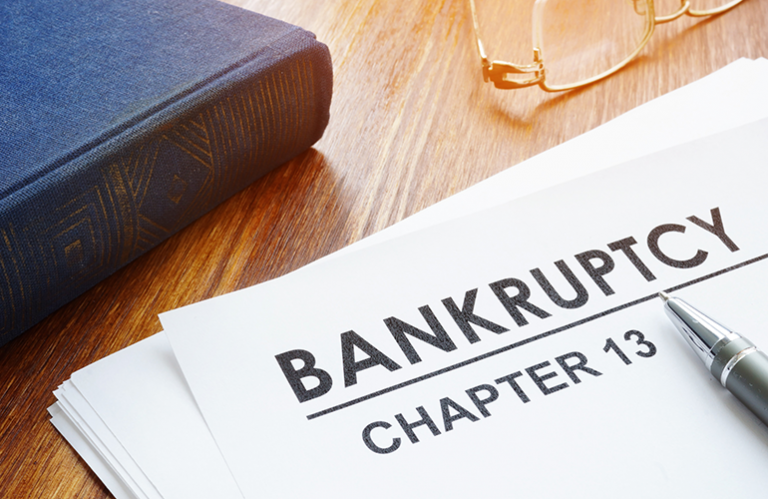Chapter 13
Home » Chapter 13
OUR SERVICES:

Chapter 13 bankruptcy eliminates debts through a repayment plan that lets you pay back a portion of your debt over a three or five-year period
Reduce Your Debts With A Chapter 13 Reorganization
Do you have a good income, but find yourself struggling to keep on top of tax payments, child support or alimony? Are you currently underwater on your mortgage or struggling to make payments on a second mortgage? Chapter 13 bankruptcy may be able to provide you with the relief and protection you need to put an end to creditor harassment and the other stresses caused by debt.
How Does Chapter 13 Reorganization Work?
Filing for Chapter 13 bankruptcy allows you to create a debt repayment plan that usually lasts between 3 and 5 years. This plan may allow you to stabilize your financial situation, eliminate your debts and keep your assets, including your home and car. It may be your best option if you are behind on a mortgage and want to keep your home.
How Is Chapter 13 Different Than Chapter 7 Bankruptcy?
Chapter 7 bankruptcy eliminates certain debts. Chapter 13 bankruptcy is a great option for those who have too much income to qualify for Chapter 7. Chapter 13 may allow you to:
- Reduce and pay off debts
- Reduce the amount you owe on your property and cars
- Create a more manageable monthly payment for your debts
- Start your life anew at the end of the repayment period
Filing for either form of bankruptcy can put a stop to calls from collection agencies and bar attempts to garnish your wages. Each also may be an option to discharge unsecured debt such as credit card debt.
Automatic Stay

One of the most powerful protection tools of a bankruptcy is the automatic stay. Whether you file Chapter 7, Chapter 13 or Chapter 11, the court issues what is known as an automatic stay. The automatic stay puts your creditors on notice that you have filed for bankruptcy, and they must stop collection activities while your bankruptcy is pending and the automatic stay is in place. Collection activity that is not allowed while the automatic stay is in place includes the following actions, among others:
- Collection letters and phone calls
- Foreclosure
- Repossession
- Wage Garnishment
- Bank Levies
- Execution of Judgments
- Lawsuits on Dischargeable Debts
Many people fighting overwhelming debt are so constantly harassed by bill collectors that they don’t have the focus to figure out a plan to get out of debt. The automatic stay in a Chapter 7 or Chapter 13 bankruptcy gives you that break to formulate the best strategy to become debt-free.
Relief from Stay
Sometimes creditors may go to court and file a motion requesting that they be relieved of the automatic stay. If granted, these creditors can legally move forward in their collection efforts, even during your bankruptcy. Additionally, a few limited categories of debt are not protected from collection by the automatic stay. These categories include:
- Child Support
- Tax Assessments
- Tax Audits
- Lawsuits Outside of the Bankruptcy Estate
After analyzing the types of bills you owe, your bankruptcy lawyer will be able to advise you on which debts are and are not included in the automatic stay.
Time Your Bankruptcy Filing to Make the Most of the Automatic Stay
The automatic stay is a very powerful protection for bankruptcy filers. If you wait too long to file for bankruptcy, however, you may not get the full benefit of the automatic stay. For instance, the automatic stay can prevent a lawsuit from being filed or keep it from being pursued. But if your case has already gone to judgment and the creditor has secured a lien against your property, that creditor may be able to get relief from the stay unless you can provide adequate protection for their property interest.
Also, while the automatic stay can stop a wage garnishment from continuing, you may never be able to recoup the portion of your wages which were lost while the garnishment was in effect. In these situations, filing for bankruptcy sooner rather than later will help you protect your valuable property and keep you from losing more money than needed.
Benefits Of Chapter 13 Debt Repayment Plans
Repayment plans are ideal for people with secured assets they want to keep, such as homes or vehicles. A repayment plan can allow you to reorganize your debt. Chapter 13 bankruptcy can help you come out of bankruptcy with manageable payments to keep your home, your car or other valuable assets.
How Is Chapter 13 Different From Chapter 7?
The primary difference between the two chapters is that Chapter 13 is a debt repayment plan and Chapter 7 discharges debt. Also, Chapter 7 bankruptcy may liquidate nonexempt assets in order to pay back creditors and discharge remaining unsecured debts.
GET CONTROL OF YOUR DEBT :
Contact an experienced chapter 13 bankruptcy lawyer at 703-559-6950
The information provided on this website does not, and is not intended to, constitute legal advice; instead, all information, content, and materials available on this site are for general informational purposes only. Information on this website may not constitute the most up-to-date legal or other information. This website contains links to other third-party websites. Such links are only for the convenience of the reader, user or browser; we do not recommend or endorse the contents of the third-party sites.

